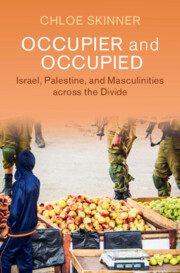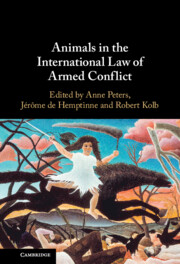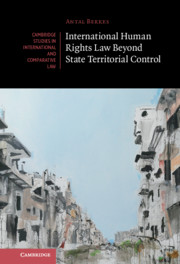Refine search
Actions for selected content:
34 results
6 - Buying Benevolence
- from Part II - War in Mexico
-
- Book:
- Protecting Women
- Published online:
- 27 November 2025
- Print publication:
- 11 December 2025, pp 217-255
-
- Chapter
- Export citation
4 - Rescuing the Enemy
- from Part II - War in Mexico
-
- Book:
- Protecting Women
- Published online:
- 27 November 2025
- Print publication:
- 11 December 2025, pp 147-182
-
- Chapter
- Export citation

The Fascist Zenith
- War and Dictatorship under Axis Rule
-
- Published online:
- 26 November 2025
- Print publication:
- 11 December 2025
-
- Element
- Export citation
5 - Food as Experience
-
-
- Book:
- Hunger Redraws the Map
- Published online:
- 01 November 2025
- Print publication:
- 20 November 2025, pp 144-168
-
- Chapter
- Export citation
4 - ‘It’s the Way I Empty What Is Inside of Me’: Occupied Masculinities, Emotional Expression, and Rap Music in a Palestinian Refugee Camp
-
- Book:
- Occupier and Occupied
- Published online:
- 15 June 2025
- Print publication:
- 26 June 2025, pp 94-107
-
- Chapter
- Export citation
2 - ‘You Can Do Nothing; He Is a Soldier with Gun, and He Is Controlling You’: The Masculinised Body under Occupation
-
- Book:
- Occupier and Occupied
- Published online:
- 15 June 2025
- Print publication:
- 26 June 2025, pp 56-74
-
- Chapter
- Export citation

Occupier and Occupied
- Israel, Palestine, and Masculinities across the Divide
-
- Published online:
- 15 June 2025
- Print publication:
- 26 June 2025
Training and Deployment of America's Nuclear Cold Warriors in Asia
-
- Journal:
- Asia-Pacific Journal / Volume 20 / Issue 17 / October 2022
- Published online by Cambridge University Press:
- 14 March 2025, e4
-
- Article
-
- You have access
- Open access
- Export citation
8 - Criminalized Governance during Military Occupation
-
- Book:
- Inside Criminalized Governance
- Published online:
- 06 February 2025
- Print publication:
- 13 February 2025, pp 243-270
-
- Chapter
- Export citation
Chapter 2 - Prelude to a War
-
- Book:
- War, Rebellion and Epic in Byzantine North Africa
- Published online:
- 12 October 2023
- Print publication:
- 26 October 2023, pp 36-85
-
- Chapter
- Export citation
7 - From Culture Wars to a World War
- from Part III - Cataclysms (1941–1963)
-
- Book:
- Heroes to Hostages
- Published online:
- 03 August 2023
- Print publication:
- 24 August 2023, pp 145-190
-
- Chapter
- Export citation
7 - The Nature of the Senkaku Islands
-
- Book:
- Japan's Ocean Borderlands
- Published online:
- 06 July 2023
- Print publication:
- 27 July 2023, pp 201-231
-
- Chapter
- Export citation

Animals in the International Law of Armed Conflict
-
- Published online:
- 06 October 2022
- Print publication:
- 06 October 2022
15 - Citizenship and Nationality: Cyprus
- from V - Rights
-
-
- Book:
- Constitutionalism in Context
- Published online:
- 17 February 2022
- Print publication:
- 17 February 2022, pp 330-350
-
- Chapter
- Export citation
3 - Origins and Evolutions of Legal Debates on the Environment-Conflict ‘Nexus’
- from Part I - Concepts, Theories, and Debates
-
- Book:
- The Ecology of War and Peace
- Published online:
- 03 September 2021
- Print publication:
- 16 September 2021, pp 60-102
-
- Chapter
- Export citation

International Human Rights Law Beyond State Territorial Control
-
- Published online:
- 16 June 2021
- Print publication:
- 17 June 2021
War and peace in liberated North Korea: Soviet military administration and the creation of North Korean police force in 1945
-
- Journal:
- International Journal of Asian Studies / Volume 19 / Issue 1 / January 2022
- Published online by Cambridge University Press:
- 15 June 2021, pp. 117-133
-
- Article
-
- You have access
- Open access
- HTML
- Export citation
A Tentative Dissolution of Austria-Hungary: The 1914–15 Russian Occupation of Lviv in Polish Memory
-
- Journal:
- Austrian History Yearbook / Volume 52 / May 2021
- Published online by Cambridge University Press:
- 08 April 2021, pp. 166-181
- Print publication:
- May 2021
-
- Article
-
- You have access
- Open access
- HTML
- Export citation
Between trust and violence: medical encounters under Japanese military occupation during the War in China (1937–1945)
-
- Journal:
- Medical History / Volume 64 / Issue 4 / October 2020
- Published online by Cambridge University Press:
- 28 October 2020, pp. 494-515
-
- Article
-
- You have access
- HTML
- Export citation
4 - ‘A Moderate Occupation’
-
- Book:
- Fighting Terror after Napoleon
- Published online:
- 12 September 2020
- Print publication:
- 01 October 2020, pp 138-204
-
- Chapter
- Export citation
